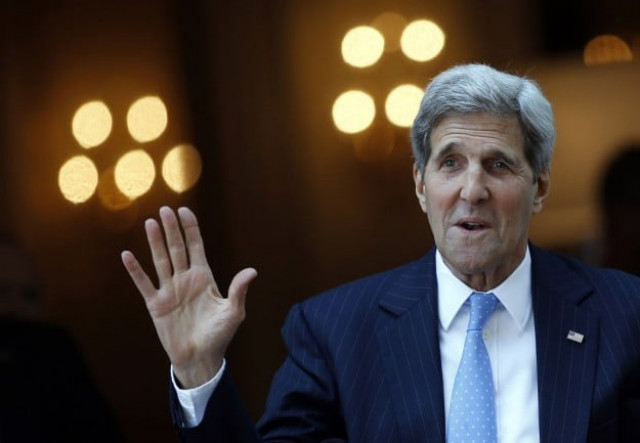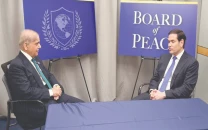US says NATO enlargement not a threat to Russia
US Secretary of State John Kerry's statement came after NATO invited Montenegro to join

"NATO is not a threat to anyone ... it is a defensive alliance, it is simply meant to provide security," said US Secretary of State. PHOTO: AFP
"NATO is not a threat to anyone ... it is a defensive alliance, it is simply meant to provide security," Kerry told a news conference. "It is not focused on Russia or anyone else."
NATO invites Montenegro to join alliance
Nato foreign ministers on Wednesday invited Montenegro to join the US-led military alliance, a move Russia has repeatedly warned would be a provocation and a threat to stability in the western Balkans.
“Nato foreign ministers have just taken the historic decision to start accession talks for Montenegro to become the 29th member,” alliance head Jens Stoltenberg said.
“This is a good day for Montenegro, for the western Balkans and for the whole alliance,” Stoltenberg said to applause from the 28 Nato foreign ministers meeting in open session to approve the decision.
“It makes clear Nato keeps its door open (and bolsters) … our vision of a Europe whole and at peace.”
NATO lifts 16-year airspace restrictions in 'new start' with Serbia
Montenegro Foreign Minister Igor Luksic said Nato’s decision reflected the great efforts his country had made to modernise and meet western civil society norms.
“Today we open a new chapter … it is a great day for my country and for the alliance,” Luksic said.
“It is great news for the western Balkans, for its unity and security,” he said.
Russia last week described the expected decision on Montenegro as a “serious blow by the euro-Atlantic bloc.”
“This sort of initiative has the real potential to bring about confrontation. It will not promote peace and stability in the Balkans nor in Europe in general,” Moscow said.
Earlier this month, NATO announced the lifting of restrictions over Serbian airspace as part of a “fresh new start” in relations with Belgrade, 16 years after the Western military alliance dropped bombs on the country.
On a visit to the capital, NATO Secretary General Jens Stoltenberg said an ‘air safety zone’ over a small part of Serbia had been “fully relaxed” as of November, 20.
“This means that the restrictions that have been in place since 1999 are now lifted, and this is a very concrete expression of the improved relationship between NATO and Serbia,” he said.



















COMMENTS
Comments are moderated and generally will be posted if they are on-topic and not abusive.
For more information, please see our Comments FAQ